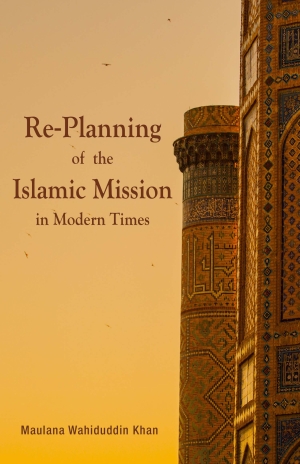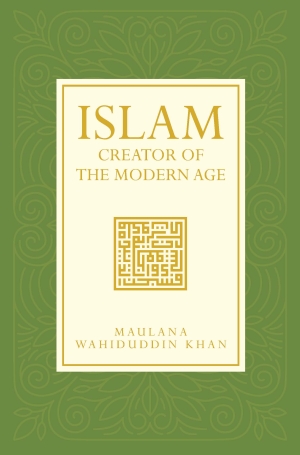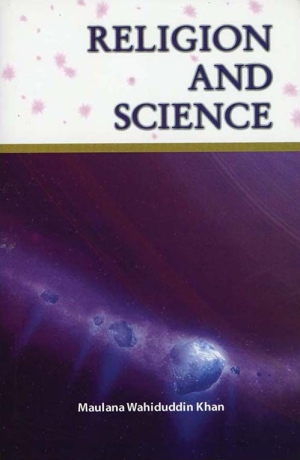Islam being the religion of nature, there is no contradiction between Islam and science. Quran, believed to be the preserved book of God, is free from human interpolation. The personality of the Prophet of Islam, his life, and his teachings are historically established. The age of science and technology has only strengthened the religion of Islam.
Islam in the 7th century paved the way for modern science by distinguishing between a Creator and the rest of the universe.
The nature of human intellect and his urges demand that divine guidance guides his mental prowess. Islamic scripture, the Quran, is the preserved revelation from the Creator to guide man about the meaning and purpose of his existence.
Featured Articles
Featured Videos
FAQs
Before the twentieth century, it was accepted that only what was observable was considered to exist. But after the splitting of the atom, in the first quarter of the 20th century, man’s conceptions about matter have been drastically altered. In fact, the advance of science in the past century has culminated in a knowledge explosion, the likes of which have never before been experienced in human history and in the wake of which many ancient ideas about God and religion have had to be re-examined.
Now science postulates that whatever events take place in the world of Nature happen in accordance with specific laws of Nature. Some people may take this argument to imply that there is no need for the existence of an ‘unknown’ God in order to explain these events since known laws already exist to explain them. Julian Huxley says this with great conviction: “If events are due to natural causes, they are not due to supernatural causes.” Analysing this argument, I concluded that science, which seeks to provide explanations for the laws of Nature, cannot replace religion, because, for this, it would need to discover the ultimate and absolute explanation, which it is not in a position to. The best answer to this argument is given by American biologist Cecil Boyce Hamann: ‘Nature does not explain, she is herself in need of an explanation’. The fact is that the entire body of modern scientific enquiry is concerned only with the question ‘What is it that exists?’ The question ‘Why does it exist?’ is far beyond its purview.
Now scientific argument proves, beyond the shadow of a doubt, that far from having a damaging effect on religion, modern knowledge has served to clarify and consolidate its truths. Many modern discoveries support Islamic claims made 1400 years ago that what is laid down in the Quran is the ultimate truth and that this will be borne out by all future knowledge. This has been alluded to in the Quran in these words:
“Soon We will show them Our signs in all the regions of the earth and in their own souls, until they clearly see that this is the truth.” (41:53)
From this, we can understand how science affirms the veracity of religious truths.
Source: God Arises
Present-day science includes in its ambit many things (such as electrons, the law of gravity, X-rays, etc.) which are non-material in nature. They cannot be observed by the human eye, but every scientist believes in their existence, for the simple reason that although we cannot see these things directly, we can see their effects—for example, a falling apple, in the case of gravity, and a photo film, in the case of X-rays. We believe in the existence of all these things, not by direct observation but by their results, or, in other words, by way of indirect knowledge or inferential argument.
This change in human knowledge also changed the theory of logic. It is now well established in science that the inferential argument is as valid as the direct argument. In the pre-Einstein era, unbelievers held that the concept of God pertained to the unseen world and that since no direct argument was available to prove it, belief in God was illogical. They considered all the relevant indirect arguments as scientifically invalid since these were inferential in nature. But now the whole situation has changed. As nothing is really observable, the existence of anything can be established only by means of the inferential argument, not the direct argument.
If the inferential argument is valid with regard to the unseen micro-world, it is also valid with regard to the existence of God and other religious truths. Bertrand Russell admitted the fact that the argument centering on design propounded by theologians seeking to offer evidence for the existence of God is scientifically valid.
The fact is that when there is design, there must also be a designer. We see that our world is well-designed. This should lead us to believe that there is a Designer of it—God Almighty.
Source: God Arises
So long as natural phenomena were attributed to supernatural causes, they were regarded as objects of worship. Natural phenomena and objects such as fire, water, the sun, and the moon were venerated and feared. The laws of nature, the application of which would enable man to reach the moon and make use of nature to one’s advantage, have existed throughout the universe since time immemorial, yet it took man centuries to discover them. Given the possibilities of nature, why did so many thousands of years have to elapse in the course of man’s development before he felt ready to conquer nature? The answer to this is the prevalence of a culture of worshipping nature. For instance, man considered the moon a deity. The moon, with its brilliant silvery light, inspired man to bow before it rather than try to conquer it. Holding the moon to be sacred was a major obstacle to even thinking of conquering it.
Islam in the 7th century paved the way for modern science by distinguishing between a Creator and the rest of the universe. The entire universe is created by one God. No creation possesses any form of divinity. This creed revolutionized human thought. Nature, which was once held to be the object of worship became an object of investigation. Observation and experiment replaced assumption and speculation. In a magnificent 5-volume work A History of Science by Henry Smith Williams and Edward Huntington Williams, it is mentioned that: “There cannot well be a doubt that the adoption of those broad principles of right and wrong which underlie the entire structure of modern civilization was due to scientific induction, in other words, to the belief, based on observation and experience, that the principles implied were essential to communal progress. (Vol. 1)
The role of Islam in the emergence and development of science is generally acknowledged. Dennis Overbye in The New York Times, dated Oct. 30, 2001, writes:
“Commanded by the Koran to seek knowledge and read nature for signs of the Creator, and inspired by a treasure trove of ancient Greek learning, Muslims created a society that in the Middle Ages was the scientific center of the world. The Arabic language was synonymous with learning and science for 500 hundred years, a golden age that can count among its credits the precursors to modern universities, algebra, the names of the stars and even the notion of science as an empirical inquiry."
“Nothing in Europe could hold a candle to what was going on in the Islamic world until about 1600,’’ said Dr. Jamil Ragep, a professor of the history of science at the University of Oklahoma.
It was the infusion of this knowledge into Western Europe, historians say, that fueled the Renaissance and the scientific revolution."
Science does not negate the Creator, as its goal is to understand and explain the natural phenomena. It makes no claim to account for the underlying reason for the events. This is a prerogative of the divine revelation to satisfy the natural urge of human beings to find meaning and purpose of the creation, including themselves. This is reiterated thus:
In the attempt to explain (the) fact of terrestrial gravitation Newton made no advance, and we of today are scarcely more enlightened than the man of the Stone Age. Like the man of the Stone Age, we know that an arrow shot into the sky falls back to the earth. We can calculate, as he could not do, the arc it will describe and the exact speed of its fall; but as to why it returns to earth at all, the greatest philosopher of today is almost as much in the dark as was the first primitive bowman that ever made the experiment. (A History of Science, Vol. 1)
The nature of human intellect and his urges demand that his mental prowess is guided by divine guidance. Islamic scripture, the Quran, is the preserved revelation from the Creator to guide man about the meaning and purpose of his existence.
Source: Spirit of Islam July 2020












